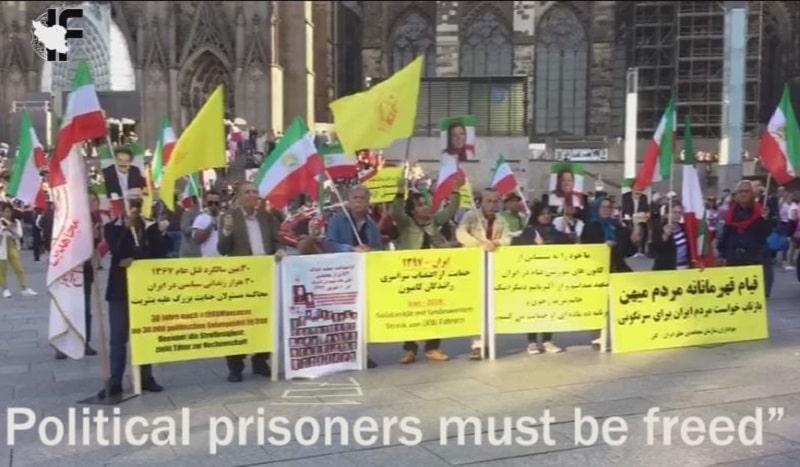1988 massacre
Action in Cologne, Germany-Rome, Italy-London, England on the occasion of the 30th anniversary of the 1988 massacre
The 1988 massacre of 30,000 political prisoners in Iran is considered the worst massacre of political prisoners since the end of World War II.
Most of those executed were youths who had been imprisoned for taking part in peaceful demonstrations or for having read political literature. Many of them had finished serving their sentences.
Prisoners were hanged in large groups and subsequently buried in mass graves. Death commissions sent prisoners to the gallows after a brief question and answer.
A November 2, 2007, report by Amnesty International states that ‘‘between 27 July 1988 and the end of that year, thousands of political prisoners [in Iran], including prisoners of conscience, were executed in prisons nationwide.’’
According to Amnesty International, “There should be no impunity for human rights violations, no matter where or when they took place. The 1988 executions should be subject to an independent impartial investigation, and all those responsible should be brought to justice, and receive appropriate penalties.’’
The masterminds and perpetrators of this massacre have held the highest judicial, political, and intelligence government posts since the beginning of the mullahs’ rule. Not only they defend their crimes against humanity, but they continue such executions and massacres.
An audio tape by Khomeini’s heir-apparent reveals new evidence about the massacre of over 30,000 political prisoners, including women and children, in Iran’s jails in summer 1988. Addressing members of the “death commission” who issued the death sentences, Khomeini’s heir-apparent described the massacre as, ‘‘the greatest crime committed during the Islamic Republic, for which history will condemn us.’’
We, the undersigned, urge you to act through the U.N. Special Rapporteur on the situation of human rights in Iran, the Human Rights Council and the U.N General Assembly and launch an independent committee to completely investigate this massacre and compile the necessary documents about it, as well as the names of the perpetrators and their roles in order to uphold justice.
